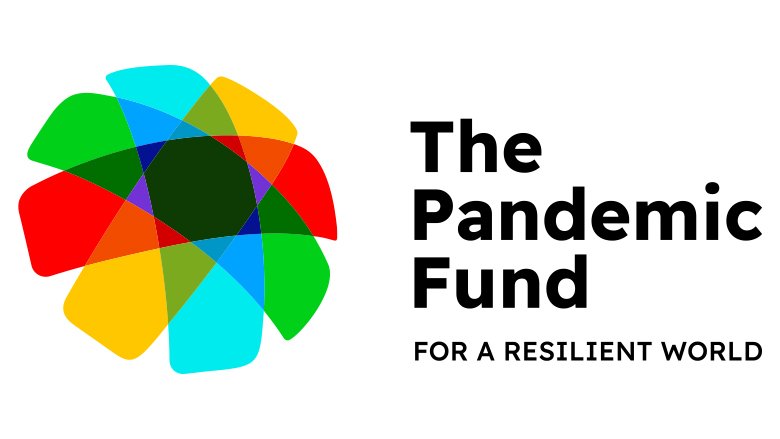This is one of 19 projects to which a grant was awarded by the Pandemic Fund under the First Call for Proposals. For information on the full set of projects supported by the First Call for Proposals, please refer to this press release.
Background
Burkina Faso confronts a myriad of development and humanitarian issues that have been exacerbated by growing governance and security challenges and rising numbers of Internally Displaced Persons. By the end of 2022, over 200 health facilities had been closed due to security issues, restricting access to primary health care for over 2.4 million people. The country faces vulnerabilities to ongoing disease outbreaks such as meningitis and measles. It faces risks from disease transmission from neighboring countries, including hemorrhagic fevers such as Marburg, Ebola, Lassa Fever, and Rift Valley fever. Burkina Faso has prioritized health security in recent years, which has led to a multi-faceted plan to address the country’s biggest gaps in pandemic preparedness, prevention, and response (PPR).
With the $19.3 million Pandemic Fund grant, US$18 million in co-financing, and US$10 million in co-investment, Burkina Faso plans to implement the International Health Regulations (IHR) by improving their prevention and response to health emergencies while coordinating with actors at the national, sub-regional, and international level. The Strengthening Disease Surveillance Systems, Laboratory Capacity, and Staff Skills in Public Health Emergency Preparedness and Coordination Project brings together relevant ministries, civil society organizations (CSOs), and three Implementing (IEs) (FAO, UNICEF, and WHO) to address critical PPR gaps within the health system.
Project objectives
The primary objective of the Project is to strengthen Burkina Faso’s capacity to manage public health emergencies through a One Health approach and to meet International Health Regulations (IHR) 2005 requirements by 2026.
Implementation arrangements and key components
The One Health Technical Secretariat, created by the Ministry of Health and composed of professionals from the key ministries, will lead project implementation. It will work closely with ministerial focal points and other stakeholders such as civil society organizations throughout the life of the project.
The key components of this project align with the technical benchmarks of Burkina Faso’s most recent Joint External Evaluation and Performance of Veterinary Services evaluations. Implementing Entity involvement is shown under each component. The Project will also collaborate with existing organizations in the country.
- Improving surveillance and monitoring. This component includes, among others, activities to strengthen event-based surveillance across human, animal, and environmental health. In the area of antimicrobial resistance (AMR), it will develop and validate national plans for healthcare-associated infection control programs and for the rational use of antibiotics in humans and animals. It will increase awareness, education, and training on AMR and strengthen surveillance of antimicrobial use in humans, livestock as well as side effects in the environment. Core capacities at point of entries will also be improved by developing emergency plans and updating standard operating procedures (with joint simulation exercises) for preparedness and response. In insecure areas of the country, it will support harmonized data collection and rapid interventions, when needed, by health and humanitarian organizations working in these areas. It will provide vehicles for rapid response teams and laboratories and set up six regional centers for public health emergency operations. More generally, the component will elevate early warning detection, verification, investigation, analysis, and information sharing by adopting surveillance mechanisms for antimicrobial resistance, zoonotic disease, and environmental health (FAO, WHO).
- Upgrading laboratory systems. This component will support, among others, the purchase of laboratory equipment, supplies, and vehicles needed to strengthen laboratory quality and testing capacities in human and animal health. It will strengthen the existing laboratory information system by connecting laboratories to central systems such as DHIS2. It will invest in AMR monitoring sites, biosafety and biosecurity practices, and quality assessment. It will support contracting for the transport of animal health samples, put in place mechanisms for the transport of samples in security-challenged areas, and provide training in the transport of infectious materials (FAO, UNICEF, WHO).
- Strengthening the multisectoral workforce. This component supports technical trainings targeting professionals in the human, animal, and environmental health sectors in accordance with the One Health approach. It includes education and training for communities to scale-up multisectoral and event-based surveillance (FAO, WHO).
Expected outcomes
The project is expected to strengthen Burkina Faso’s capacity to reduce the health and socio-economic impacts of potential disease outbreaks while improving coordination across animal, environmental, and human health sectors.
Key Financial Statistics
| Amount Approved (US$) | Total Co-financing (in kind & in cash) (US$) | Total Co-investment (in kind & in cash) (US$) |
| 19,352,000 | 18,430,844 | 10,025,206 |
For inquiries about this project: YAMEOGO Issaka - yameogoissaka2015@gmail.com
For media inquiries: Anita Rozowska - arozowska@worldbankgroup.org
For general inquiries: the_pandemic_fund@worldbank.org

